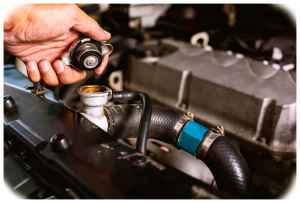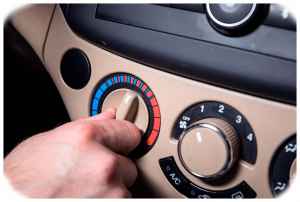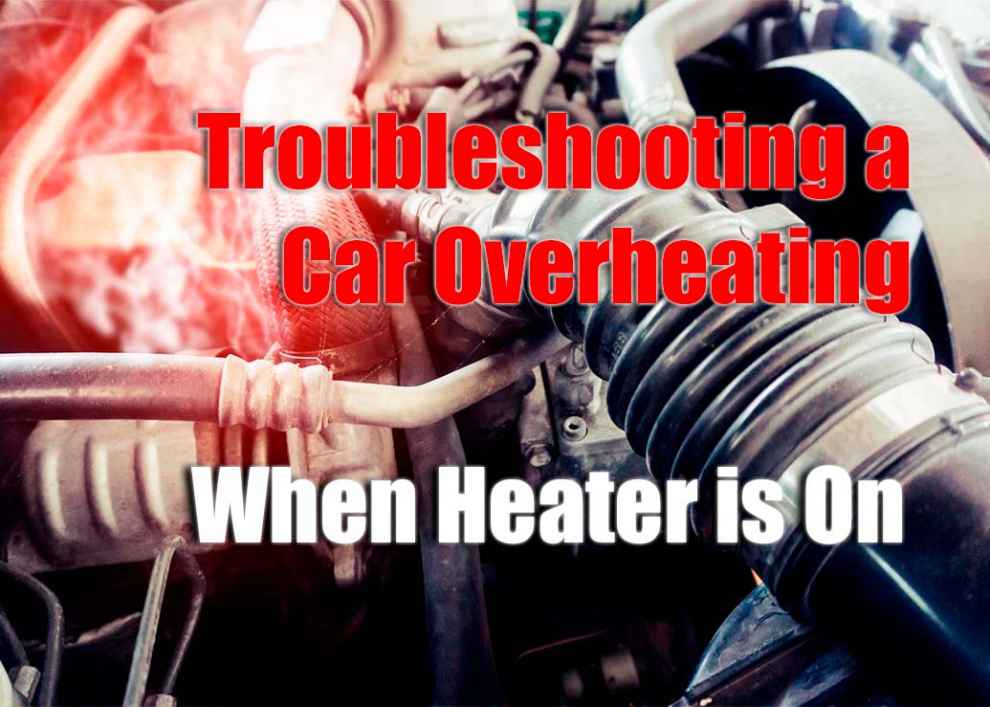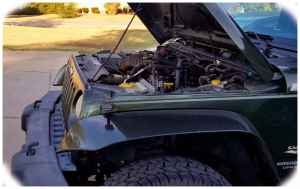A car’s cooling system is designed to prevent your engine from overheating, but sometimes it can fail. If your car starts to overheat when you turn on the heater, it may be due to some causes. In this article, we’ll discuss the most common causes of overheating when the heater is on and how you can troubleshoot and fix them.
How the Cooling System Works
The cooling system helps keep your engine at its optimum operating temperature by using a combination of air and liquid coolants to dissipate heat. The liquid coolant travels through a radiator or heat exchanger, which helps cool it down before being recycled back into the engine block. A fan also helps draw in cold air while pushing out hot air from around the engine block. Finally, a thermostat usually regulates how much fluid enters and leaves the system based on its pressure and temperature readings.
Causes of Overheating When Heater Is On
Thermostat Issues: If your thermostat becomes stuck in either an open or closed position, it can prevent the proper flow of fluid through your cooling system, leading to overheating when the heater is on.
Low Coolant Levels: Low coolant levels can lead to overheating when the heater is on. This can be caused by a leak in your cooling system or just not topping up your coolant regularly as part of maintenance. Here are the Best Coolants for Jeep.
Coolant Leaks: Leaks in your cooling system can cause coolant to escape, which leads to low levels and overheating when the heater is on. It’s important to check for leaks regularly and have them fixed as soon as possible.
Malfunctioning Water Pump: The water pump helps circulate coolant throughout your engine block, and when it fails, it can lead to overheating when the heater is on. If you suspect this might be the cause, you should take your car into a mechanic for diagnosis and repair.
Clogged Radiator: A clogged radiator prevents proper airflow through your cooling system, which causes temperatures within the engine block to rise quickly, leading to overheating when the heater is on. You may need a professional mechanic’s help with this issue, as unclogging requires dismantling parts of your car’s radiator.

Blown Head Gasket: A blown head gasket will allow coolant and oil to mix, which can cause overheating when the heater is on. This issue needs to be fixed as soon as possible, or more serious damage could occur.
Electrical Problems: Electrical problems in your car’s system can also cause overheating when the heater is on, especially if they interfere with proper operation of the thermostat, water pump, or radiator fan. It’s best to have this issue looked at by a professional mechanic.
Other Possible Causes: Other causes of car overheating when the heater is on include faulty engine components such as spark plugs, spark plug wires, and oxygen sensors; low oil levels; clogged air filter; worn-out belts; and an overfilled coolant reservoir tank.
Symptoms of Overheating When Heater Is On
The most common symptom of car overheating when the heater is on is steam coming from under the hood or a temperature gauge that reads higher than normal. Other symptoms include a smell of burning antifreeze, a “check engine” light on the dashboard, white smoke from the exhaust pipe, and a loud rattling sound from the engine.
How to Prevent Overheating When Heater Is On
The best way to prevent car overheating when the heater is on is to get regular maintenance done. This includes checking for leaks in the cooling system, topping up coolant levels, and ensuring all electrical connections are in good condition. You should also check your oil level and have your spark plugs changed or cleaned every few months.
When driving with the heater on, it’s important to keep an eye on your temperature gauge or dashboard indicator lights and pull over if you notice any sudden temperature changes. It’s also important to avoid stopping and starting frequently as this can increase wear and tear on your car’s engine components leading to overheating when the heater is on.
What To Do When Your Car Overheats When Heater Is On
If your car overheats when the heater is on, there are several steps you can take to address the issue and prevent damage to your engine. Here are the steps you should follow:

Turn on the blower: Turn on the blower to the maximum setting. This will help cool down the engine by circulating air over the radiator.
Pull over: If the engine is still overheating, pull over to a safe location as soon as possible. Do not continue driving if the temperature gauge is in the red zone.
Check the coolant level: Once you’ve pulled over, let the engine cool down for a few minutes. Then, check the coolant level in the radiator and the coolant reservoir. If the coolant level is low, add more coolant as needed.
Check for leaks: Check for any leaks in the coolant system, including the radiator, hoses, and water pump. If you find any leaks, have them repaired as soon as possible.
Check the thermostat: If the coolant level is good and there are no leaks, the thermostat may malfunction. Have a mechanic check the thermostat and replace it if necessary.
Check the fan: The fan may not be working properly, which can cause the engine to overheat. Have a mechanic check the fan and repair or replace it if necessary.
In summary, when your car overheats when the heater is on, turn off the heater, turn on the blower, pull over to a safe location, check the coolant level and for leaks, check the thermostat, and check the fan. If you cannot diagnose and fix the problem yourself, have a professional mechanic inspect your car.
Conclusion
Car overheating when the heater is on can be serious and should not be taken lightly. In this article, we discussed the common causes of car overheating when the heater is on and how to prevent it from happening in the first place. We also outlined what steps you need to take when your car overheats when the heater is on. Remember to always get regular maintenance done and stay vigilant when driving with the heater on to avoid serious damage or injury from an overheated engine.


Add Comment